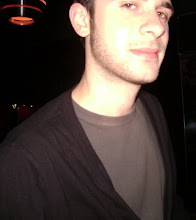A couple of months ago, no matter who I was with, I could not help but hear Lil Mama. Seriously, everywhere I went, all I could think about was lipgloss.
Whatcha know about me, whatcha know about me? I know plenty, like that your lipgloss is popping.When not listening to beauty cosmetic commercials, I took some time to crank that souljaboy (you!).
My first reading of this new youth oriented hip-hop trend was the usual one. While I found it very encouraging that new hit rap songs weren't loaded with pimps and violence. I was somewhat disturbed by the alarming and blatant capitalism in the videos. It reminded me of those 80's cartoons that I grew up on... I mean, those shows were essentially 30 minute commercials.
A song about (L'oreal) lipgloss is one thing, bragging about the size of your chain is another thing, but having a L'Oreal hot dog cart worker throwing lipgloss to children who then wave them around like magic wands is completely ridiculous. I mean... come on.
G-Slide sparked my second reading of these music videos. Corporations were exploiting consumers through sponsorship. After all, Lil Mama's lipgloss wasn't able to create a tween-inspired shiny tour bus, but her killer dance moves (and shoes) were able to.
But why should a double standard be used in the cases of these hip-hop videos? After all, rockers play at Pepsi Fest, Starbucks has its own music label, and so on.
So now I sit here and am on my third reading of these videos. I am tired of those rap is bad studies. I mean, I could easily just leave it at that for these music videos. Ok, they don't promote violence but they are about sheer consumerism.
I think it is more relevant to look into the cultural situations though. bell hooks, writing in response to gansta rap criticism, states that:
One cannot answer them honestly without placing accountability on larger structures of domination and the individuals (often white, usually male but not always) who are hierarchically placed to maintain and perpetuate the values that uphold these exploitative and oppressive systems. That means taking a critical looking at the politics of hedonistic consumerism, the values of the men and women who produce gangsta rap. It would mean considering the seduction of young black males who find that they can make more money producing lyrics that promote violence, sexism, and misogyny than with any other content. How many disenfranchised black males would not surrender to expressing virulent forms of sexism, if they knew the rewards would be unprecedented material power and fame?Instead of blaming the artists for cashing in on audience demand for consumerism, I think it is more important that I blame the true culprit: capitalistic patriarchy. By blaming these artists, I accomplish nothing. After all, it would be extremely ethnocentric as I live in my white privilege world to lay blame at the black artists.
Offense shouldn't be had as marginalized groups are doing what white folk have been doing for ages. We, as a society, need to look at our own actions and internal patriarchal capitalism before casting judgment on artists like Soulja Boy and Lil Mama. Before saying the artists are at fault, we need to look and wonder why these messages and images are in demand and work on that. Don't kill the messenger, but you can address why the message is what it is.
